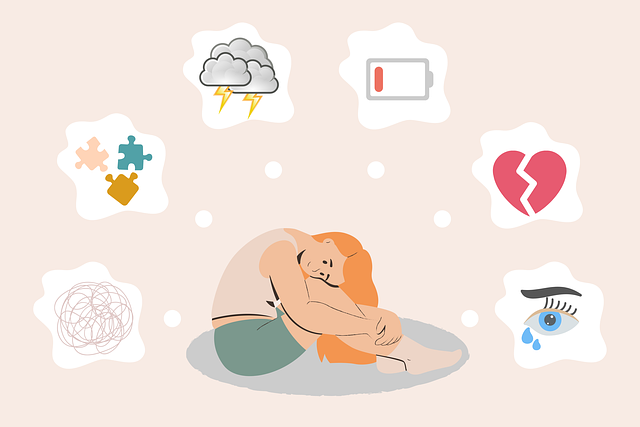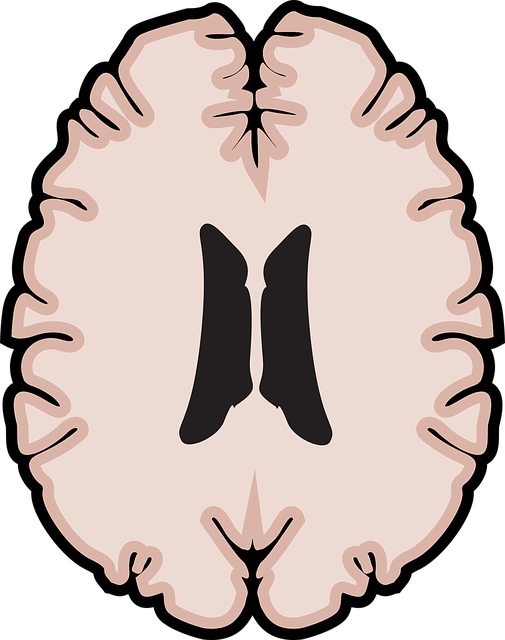Longmont Adjustment Disorder Therapy (LADT) emphasizes self-care as a powerful tool for managing mental health, particularly stress and anxiety. By incorporating tailored activities like mindfulness, exercise, and positive thinking, individuals can reduce symptoms, improve mood, and build resilience. LADT integrates these practices with cognitive behavioral therapy, offering holistic coping strategies accessible through resources like the Mental Wellness Podcast Series, to empower clients in their emotional health journey.
Self-care is not a luxury but a necessity for maintaining mental well-being. In today’s fast-paced world, understanding its impact on our mental health is crucial. This article explores effective strategies to enhance self-care practices, with a special focus on Longmont Adjustment Disorder Therapy as a holistic approach. We’ll delve into how this therapy supports individuals in navigating stress and cultivating sustainable self-care routines for improved mental resilience.
- Understanding Self-Care and Its Impact on Mental Health
- Strategies for Incorporating Effective Self-Care Routines
- Longmont Adjustment Disorder Therapy: A Holistic Approach to Enhancing Self-Care Practices
Understanding Self-Care and Its Impact on Mental Health

Self-care is an essential aspect of maintaining and improving mental health, often overlooked but profoundly impactful. It involves a range of activities and practices designed to nurture one’s physical, emotional, and psychological well-being. In today’s fast-paced world, where stress and pressure are prevalent, incorporating self-care routines can be a game-changer for managing mental health issues like Longmont Adjustment Disorder. These practices aim to restore balance, boost resilience, and promote overall life satisfaction.
Understanding the significance of self-care is crucial, especially when considering its role in fostering positive mental health outcomes. Regular self-care activities contribute to stress reduction, improved mood, enhanced self-esteem improvement, and better coping mechanisms. For individuals with adjustment disorders or those seeking crisis intervention guidance, prioritizing self-care can be a powerful tool. It enables individuals to take control of their well-being, manage symptoms, and even reduce the risk of relapse, as highlighted in the context of risk assessment for mental health professionals.
Strategies for Incorporating Effective Self-Care Routines

Incorporating effective self-care routines into your life can be transformative, especially for those managing conditions like Longmont Adjustment Disorder Therapy. The first step is to identify activities that replenish your inner strength. This could range from practicing mindfulness and meditation to engaging in physical exercise or pursuing a hobby that brings joy. Consistency is key; setting aside dedicated time each day or week for these practices can anchor them into your routine.
Once established, prioritize self-care as you would any important appointment. Positive thinking exercises like journaling, gratitude practices, and reframing negative thoughts can significantly enhance mental wellness. Regularly assessing your needs and adjusting your self-care strategies accordingly ensures they remain relevant and effective over time.
Longmont Adjustment Disorder Therapy: A Holistic Approach to Enhancing Self-Care Practices

Longmont Adjustment Disorder Therapy offers a comprehensive and holistic approach to self-care improvement, addressing both mental and emotional aspects of well-being. This therapy is designed to help individuals cope with stress, anxiety, and other challenges that can lead to burnout. By focusing on personal growth and resilience, the therapeutic process enables clients to develop effective strategies for managing their mental health.
In today’s fast-paced world, where Emotional Well-being Promotion Techniques are crucial, Longmont Adjustment Disorder Therapy stands out through its ability to integrate various practices from mindfulness meditation to cognitive behavioral therapy. This holistic method not only aids in Burnout Prevention but also empowers individuals to cultivate a deeper sense of self-care and overall mental wellness. The Mental Wellness Podcast Series Production within this framework provides accessible resources for those seeking continuous support, making it easier for folks to stay on top of their emotional health journey.
Incorporating self-care practices into daily life can significantly enhance mental health and overall well-being, as highlighted by research on Longmont Adjustment Disorder Therapy. By understanding the impact of self-care and implementing effective strategies, individuals can navigate stress, improve resilience, and lead more fulfilling lives. This holistic approach to self-improvement encourages a profound sense of balance, fostering both physical and psychological health.














